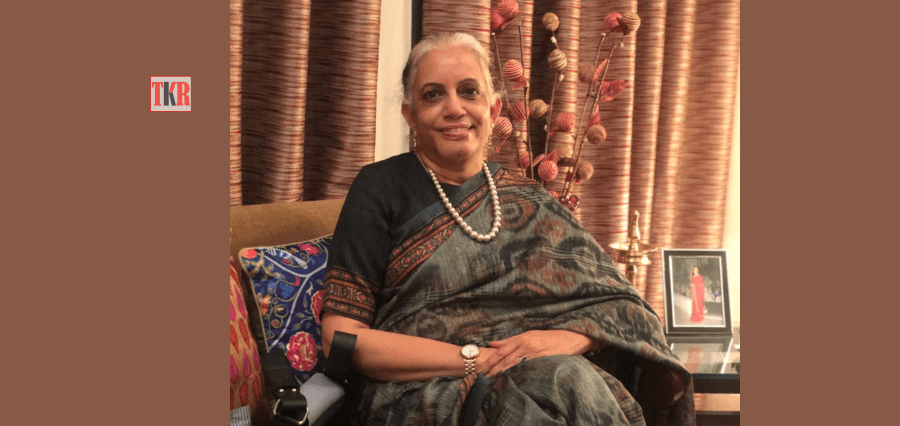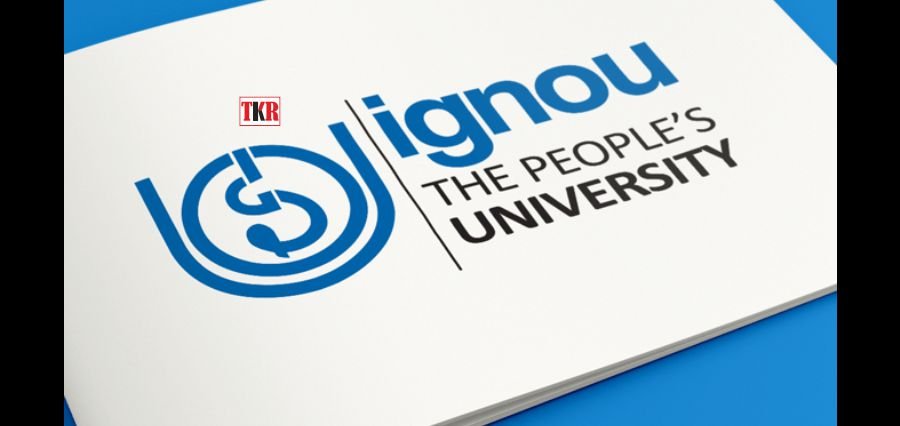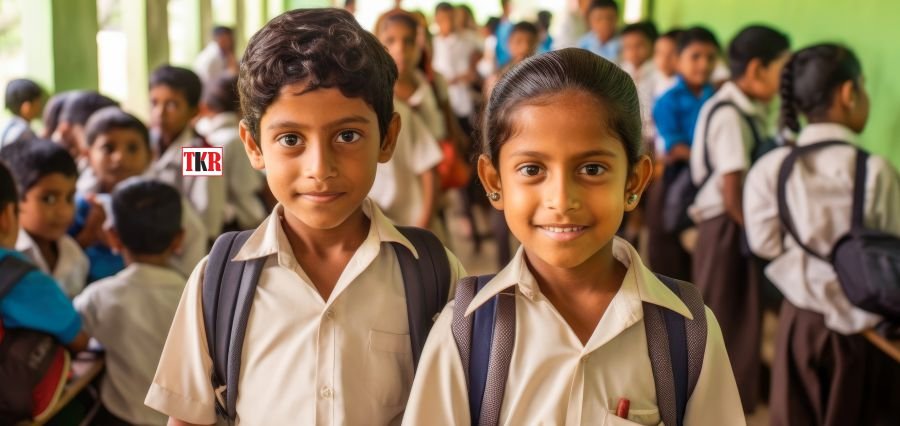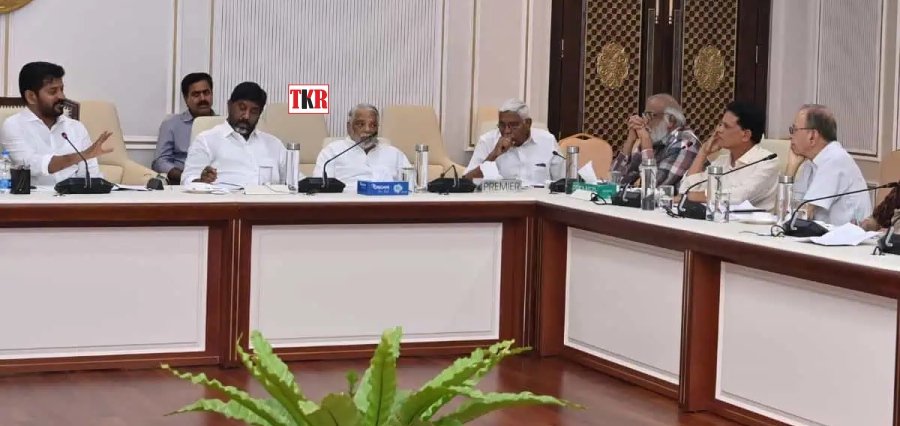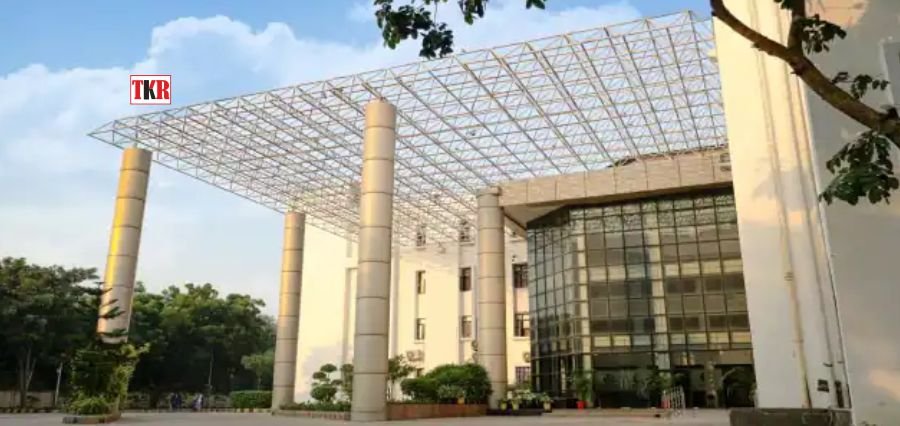Education is the key to social liberation. Educational leaders improve the quality of education with innovation, strategic planning, and establishing an inclusive environment to nurture students holistically. It’s their responsibility to foster tangible developments in students.
Ms Aruna Singh, President of Samskar-The Life School, is an inspiring personality reshaping the Indian educational sector. Her journey is a tale of passion, serendipity, and utter dedication that began in 1989.
Her son’s regular admissions visit to the school resulted in a lifetime commitment to forming impressionable minds. Her potential as a teacher was acknowledged by the principal of the school, who extended the offer of employment without any formalities. It was a spontaneous moment. Swiftly recording her qualifications on a sheet of blank paper, she set out on a path that would shape the ensuing thirty years and beyond.
The early years were a whirlwind of learning and discovery. Ms Singh explored the complexities of education as a primary teacher and saw the profound influence it could have on developing minds. Her canvas was the classroom; every lesson offered a chance to pique students’ interest and cultivate a love of learning.
Pillar of Success
From primary to secondary school and then senior secondary roles, Ms Singh advanced steadily, welcoming the opportunities and difficulties that came with each step. The winds of change started to blow in the mid-2000s, and the field of administration beckoned.
She began her journey into administration in 2006, accepting duties that extended beyond the classroom. The move from educator to administrator was a natural progression driven by a desire to contribute to the broader facets of educational leadership.
She was allowed to take on the role of full-fledged principal in 2009, allowing her to make revolutionary changes and direct the path of educational excellence. With a strong sense of responsibility and a dedication to giving students an experience that would prepare them for life after school, she was a perfect fit for the position.
As the President of Education Excellence, Ms Singh is currently at the apex of her academic career. With this role, a new chapter has begun, one in which the decades’ worth of cumulative wisdom will be applied to the overall goal of educational excellence.
She greatly appreciates the mentors, teachers, parents, and coworkers who have helped her grow. After making an unintentional foray into the field of education, she now embarks on a purposeful journey, motivated daily by the conviction that teaching is a lifetime commitment that will shape the next generation.
Mission and Vision
Describing the meaning of Samskar, Ms Singh says, “The Sanskrit term Samskar reflects not just the culture but also a deep and pure reason to create a good human being, a good family, a good society, a good nation, and thus an excellent world to live in.” Apart from education, children also need to be taught about ethnicity and ethics. The organization articulates its vision and mission statements by these values.
The goal of Samskar-The Life School is to become a preeminent hub of academic excellence known for its inventiveness, inclusivity, and dedication to the all-around growth of each student.
Along with Mr. Vamsi Mohan and Madhumathi Alluri the founders of Samskar School, Ms Singh envisions a school where students excel academically and have the values, resilience, and skills necessary to thrive in a constantly changing world. They hope to become the benchmark for transformative education that ignites a passion for learning that lasts a lifetime through cooperative partnerships and a commitment to constant improvement.
Like German cars, Italian suits, Swiss watches, and Belgian chocolates, Samskar is trusted and recognized worldwide for offering the best education possible with equal emphasis on ethics and ethnicity. The institute’s mission is to uplift and enable a community of learners to attain excellence in learning, character development, and overall health. The institute’s staff is dedicated to creating a vibrant learning environment that stimulates creativity, critical thinking, and curiosity while preparing students to be kind and responsible global citizens.
Facing the Challenges with Efficacy
Because of the changing needs of students and the dynamic nature of the education system, Ms Singh has had to deal with several challenges in her many roles. Among the difficulties she faces are:
- Since every student learns differently, it cannot be easy to accommodate their differences and still ensure everyone learns effectively.
- To keep the classroom atmosphere constructive and well-organized, teachers must effectively manage student behavior, engagement, and interactions. These days, the most essential qualities for parents, teachers, and students are perseverance and patience.
- It can be challenging for educators to stay updated with technological developments and successfully incorporate technology into their lesson plans, mainly if unfamiliar with the newest resources. This is especially clear when looking at the COVID-19 pandemic era. Many people were forced to learn things that weren’t necessary beforehand.
- When a student’s development is represented as a triangle with the teacher at the third vertex, the parents at the second, and the student at the first, if not connected and aligned cannot form a triangle. It is not easy to foster and preserve positive relationships with parents, even though cooperation and communication are crucial for a student’s success.
- Constant professional development is necessary to stay current with educational research, methodologies, and best practices; however, time constraints can make this difficult.
- The environment surrounding education is constantly changing. Readjusting to new academic policies, pedagogical approaches, and curriculum standards can be challenging, so she had to stay current.
Despite these obstacles, Ms Singh finds great satisfaction in all of her roles because she is aware of how important they are in influencing the future and improving the lives of her students. She believes that overcoming these obstacles can be facilitated by opportunities for professional development, ongoing support, and a cooperative learning environment in the classroom.
Valuable Advice for Young Learners
Ms Singh shares specific valuable advice for global students as they navigate their educational journeys:
- She admires cultural diversity and asks her students to embrace it. They should engage with students from different backgrounds, participate in cultural events, and celebrate the richness of diversity.
- The students should establish a support network by connecting with fellow students, faculty, and support services. A strong support network can make the educational experience more enjoyable and help when needed.
- If the students face challenges with coursework, they shouldn’t hesitate to seek academic support. As Ms Singh says, “A simple three-letter word, ASK, is the keyword you need to embrace.”
- Efficient time management is critical to academic success. Students should plan schedules, set priorities, and allocate time for studying, relaxation, and social activities.
- They should take advantage of extracurricular opportunities, internships, and community engagement. These experiences enhance their resume and contribute to personal and professional growth.
- Being adaptable is a valuable skill, especially in a global setting. Students should embrace change, be open to new ideas, and learn from different perspectives.
- Students should pay attention to their communication skills as it enhances their personalities and makes them globally accepted.
- Pay attention to their physical and mental well-being. Establish healthy routines, get enough rest, and seek support if they feel overwhelmed.
- They should also start thinking about their career early on. Seek internships, attend career fairs, and explore opportunities that align with their interests and aspirations.
- New professions and new ways to make their mark are coming yearly.
Students should celebrate achievements and learn from challenges. They should remember that being a global student is not just about academics; it’s a holistic journey that shapes them as individuals.
Strategies for Future
According to Ms Singh, there are a lot of exciting opportunities for professional development, creativity, and ongoing contributions to the field of education for educators in the future. Samskar – The Life School believes in teaching deep and pure values to transform the school into an organization that offers education, ethics, and ethnicity. Plans for this venture’s future include:
- To build multiple schools in different cities in the next decade.
- To provide all the facilities for the students to learn, innovate, and achieve, such as hostels, labs, and technical innovations, as well as collaborations and exchange programs.
- To build a franchise model for the Samskar Pre-Primary schools nationwide.
- Community engagement programs that connect all school branches. This can include joint events, collaborative projects, and initiatives that foster a sense of unity among students and parents.
- Strategic partnerships with education authorities to gain recognition and support for the school’s nationwide presence. Engage in or initiate global education initiatives, fostering cross-cultural exchanges, collaborations, and partnerships to provide students with a more comprehensive and interconnected learning experience.
- Develop scalable systems that can be replicated in new schools. This includes standardized curriculum, administrative procedures, and teacher training programs.
- Establish educational initiatives, such as after-school programs, workshops, or community outreach projects, to address specific needs within the community and contribute to academic enrichment.
- Advocate for educational equity and inclusivity, ensuring that all students, regardless of background or circumstances, have access to quality education and opportunities for success.

